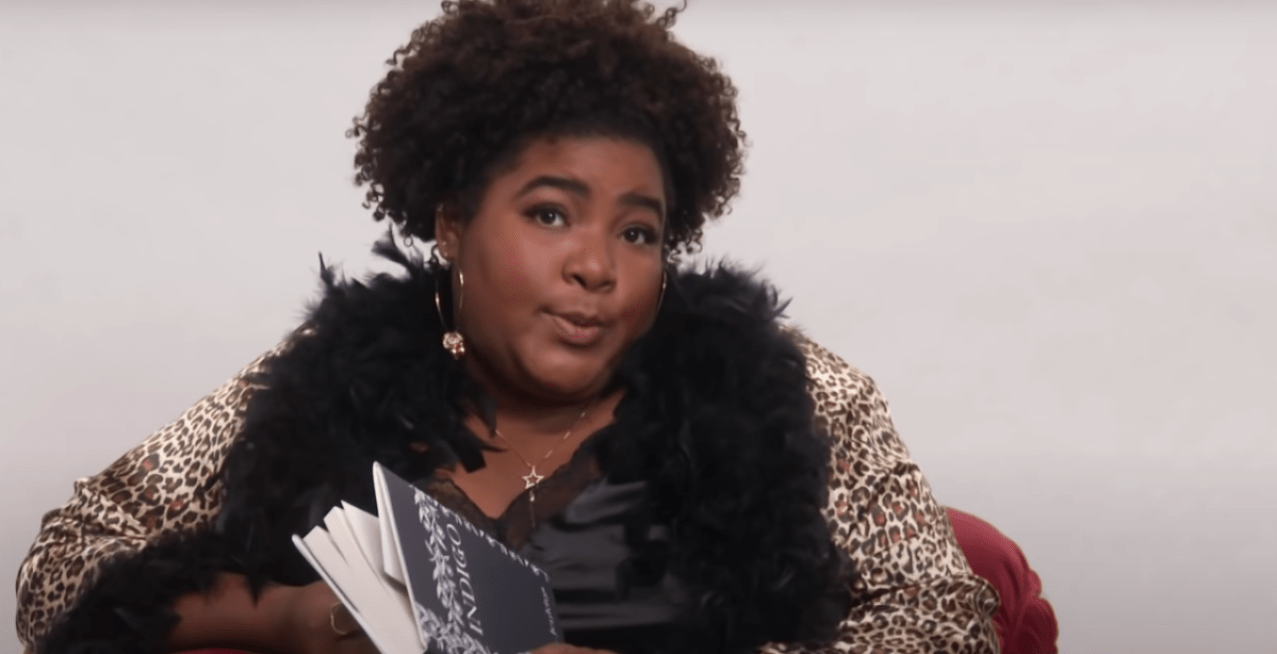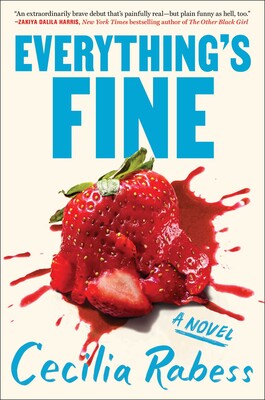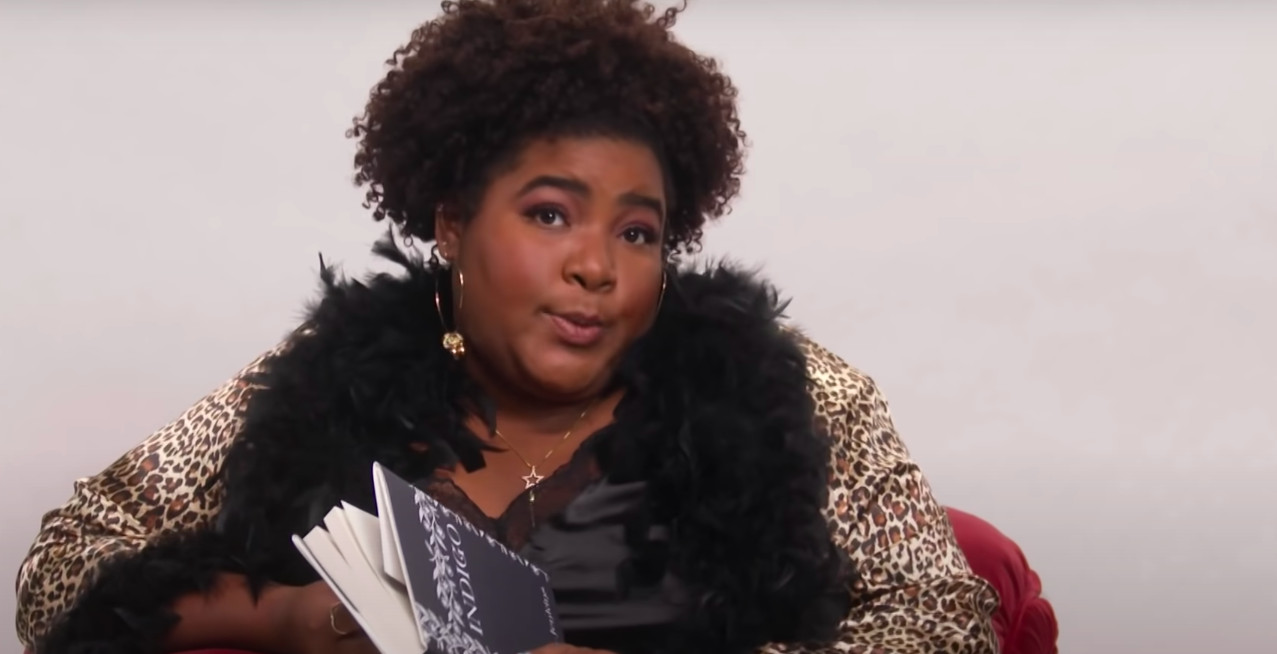
Fighting for diversity in media, especially intersectional diversity, is my whole schtick. While I try not to be the arbiter of taste—believe me, I love plenty of “bad” movies, TV shows, and books—I don’t have to disagree with or even dislike something to think it doesn’t have merit. So, whenever there’s a book controversy, I’m all over it.
The book

The latest book drama all over TikTok and Goodreads is Cecilia Rabess’s debut novel Everything’s Fine. Rabess is a seasoned writer whose nonfiction has been published in McSweeney’s, FiveThirtyEight, Fast Company, and Flowing Data.
Everything’s Fine is set for a June 6 release and is being marketed as an adult romance. In the book, the main character, Jess, becomes an analyst for Goldman Sachs and notices that she’s the only Black woman working in her department. So it hurts even more when she has to work with Josh—the epitome of a rich, white, Ivy league college prep boy. This is a romance, so obviously, they fall in love:
Despite their differences, the force of their attraction propels the relationship forwards, and Jess begins to question whether it’s more important to be happy than right. But then it’s 2016, and the cultural and political landscape shifts underneath them. And Jess, who is just beginning to discover who she is and who she has the right to be, is forced to ask herself what she’s willing to compromise for love and whether, in fact, everything’s fine.
A stunning debut that introduces Cecilia Rabess as a blazing new talent, Everything’s Fine is a hilarious, poignant, heartfelt novel that doesn’t just ask will they, but…should they?
Simon & Schuster
So, yeah. A little cringe.
What is romance?
Theoretically, the romance genre is a popular form of escapism. Dating is hard. Maintaining a relationship is hard. Work is hard. Sometimes you must vicariously live through that magical moment of the beginning spark of something new and fun without the real-life stakes. So you pick up a Talia Hibbert or Emily Henry romance novel.
When the stakes of a story lean away from romance and the act of being or falling in love, the book starts dancing in the upmarket or women’s fiction. When it veers away from love or relationships and focuses on larger societal problems, then there’s a chance that it might not be a romance book. This genre nuance has caused many arguments among booksellers—especially when categorizing Nicholas Sparks’ books.
With the Purple Hearts criticism still fresh in everyone’s minds, it’s hard not to compare the two romance stories. While the genre survives because of its many tropes, there are correct and incorrect ways to execute them. Ultimately, an enemies-to-lovers trope fails when the enemy is the oppressor.
The reviews are in and they are not positive
Rabess’s debut is being ripped to shreds on the internet.
The TikToks have gone viral and everyone’s got feelings. Everything’s Fine is being review-bombed on Goodreads and the book isn’t even out yet. As of January 2023, the book sits at a 2.69 rating before its release, with 112 ratings and 63 reviews on Goodreads.
It’s hard to determine which reviewers received an advanced reading copy (ARC). Typically, people who receive ARCs are editors, marketers, reviewers (of all levels), booksellers, and librarians. People who receive the book in advance are usually in the publishing industry and have a relationship with the publishing house.
While a book having over a hundred ratings before its publication isn’t unheard of, it’s incredibly unusual for a debut book to have this many ratings this far out from its publication date. Many ratings and reviews seem to be a reaction to the viral TikToks or the jacket copy of the book, which is typically used as promotional material.
Thankfully, it’s not too difficult to find reviews by people who actually read the book. A reviewer named Audrey describes Everything as a “thought-provoking and slightly cringey read.” They continue to say, “What’s captured so perfectly is her sense of being Black in a white world and the comments made to and about her. And, knowing that the gaslighting and the deflection of the wrongness of those comments but not being to clearly articulate WHY it’s wrong.”
Then there’s Samar, who seems to have the best take:
Ultimately, Everything’s Fine takes the liberal/conservative trope…
I’m…extremely frustrated by the reviews that are one-star bombing without reading, and I’m extremely frustrated by the very bad marketing that makes this seem like something it’s not (even the tone of the marketing is completely off!)
Samar
What went wrong?
Samar hits the problem with this book on the head: The marketing for this book is off. The second a book is categorized as a romance, readers will have various expectations. One of the largest expectations for romance books is a happily ever after (a.k.a. HEA). Love conquering all is the type of escapism that makes romance such a popular commercial genre.
It doesn’t help that contemporary romances usually have a similar voice: upbeat, chipper, quirky, and light-hearted. The stakes in the book typically only revolve around the two romantic interests and their communication. There’s always some sort of traumatic background, but the thing is, it’s in the background. It’s a thing of the past. Usually, the event that makes the tragic love interest so dark and twisty happens off-screen (or off-page).
The copy in the dust jacket makes readers believe that Everything’s Fine is a contemporary romance. There’s no hard edge to suggest that this might be an upmarket fiction book that critiques romantic relationships.
The cover does a good job of trying to differentiate the novel from the contemporary romance genre, since graphics of people have been the most popular design choice as of late. However, it seems like the book is trying to appeal to two markets: fiction and romance. How could they not? Romance books are incredibly profitable, so even if they could get a sliver of that audience, the book could make insane sales.
The problem?
Simon & Schuster might be endorsing problematic (at the very least) and abusive (at the worst) relationships where the conflict in the couple’s relationship is … racism.
As someone who works in publishing, I can tell you that editors, marketers, publicists, and managers are usually white. In fact, 76% of publishing is white. So maybe one person of color (other than Rabess) worked on the book. Maybe they didn’t feel comfortable critiquing the marketing plan. Maybe they did, but their idea was acknowledged and never addressed. I don’t know, I wasn’t in the room. However, there will continue to be issues like this as long as publishing stays the way it is.
(featured image: Comedy Central)
Have a tip we should know? [email protected]
